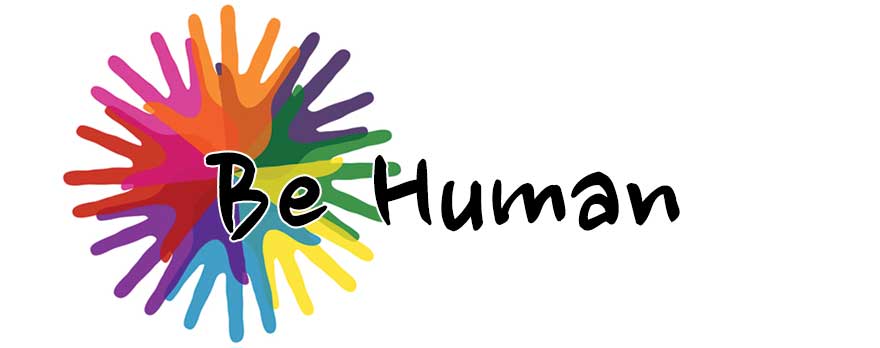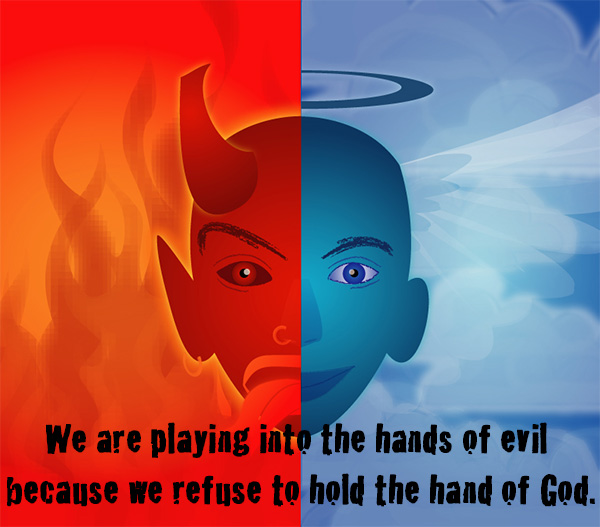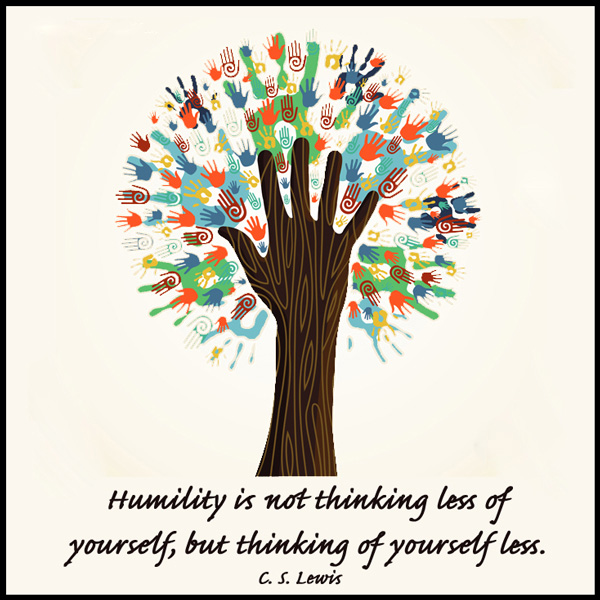|
|
| 'Like' us on Facebook | Follow us: |
Posted on: Sept 04, 2014
 |
by Mr. B. K. Misra
A post graduate in Arts from Ravenshaw College, Odisha, India, Mr. B. K. Misra taught English literature for 13 years in various universities including 7 years in his alma mater. In 1966, he came into Bhagavan’s fold under amazing circumstances, and since then longed to serve at His Lotus Feet in Prasanthi Nilayam. His dream was fulfilled in 1980 when he joined the Sri Sathya Sai Higher Secondary School, where he serves till date even after retirement.
About six decades ago, when I was a schoolboy, we had a gardener to look after the sprawling green which surrounded our humble home. He was an extremely likable person, hefty, hard-working, loyal, and forever smiling at us kids. We never complained when his muddy feet left marks on the floor of our bare outer room, for whenever he came into our house, we felt it got warmer. But one day suddenly he vanished for a week, and we were missing him very much.
When he reappeared a week later, he was a changed man. He had bandages on his head, body was covered with bruises, he looked older and his smiles had a deep sadness about them. When he stepped into our house we surrounded him, and asked too many questions. The story he revealed is still etched in my memory.
He had gone home to settle a quarrel with his brother about property. And his younger brother, though only a shadow of the elder brother, lifted the handle of a ploughshare and used it freely on him. We were stunned, and asked him why he didn’t retaliate. This man was more than a match for that deed, and he could have broken him and his pride conclusively. Then he smiled and answered, “Yes, I could have done that. But he is my younger brother, and at that time he was possessed by the devil anger. If I wanted to give blow for blow he would have been a dead man. So I took it on me. I pray to God to forgive him and change him.”
Of course at that moment I had no doubt that it was a foolish thing to do, but now I am not so sure.
The patience, understanding, and the powerful love a simple gardener demonstrated would do our generation much good if we care to see what we have lost while being busy building our skyscrapers, and developing our technologies. We have lost our closeness to each other, and to all the good things the good kind Lord gave us long ago. Our professors and theologians may split hair to decide whether our gardener should have opposed evil, and not given in, as apparently he did, and such other related questions, but personally I can vouchsafe that the incident registered in my mind at that age later saved me from many angry moments and foolish acts.
After thousands of years of civilisation, and a tremendous leap to the moon, now we have to teach a son to love his parents, and later to look after them when they cannot fend for themselves! It is no less ironical that today we measure our values by how much we can buy and sell!
Mankind, therefore, is in desperate need to mature. Fear, suspicion, anger, hate are born out of our immaturity. We have failed to act as responsible beings, failed to recognise our role in enriching or destroying life in this planet. We are afraid to acknowledge what we know. The great power we have harnessed has a grimace that matches the ugliest devil! We are creating a history that nobody will be left to read! Life has to be restructured, and into its robe sewn values that promote it, not destroy it. We are on the threshold of a new imperative that if we must make life worth living, we have to throw into the garbage of history many articles of luggage we have considered precious to our civilisation.
The Tragedy of our Times
 |
A need of such intensity to do homework had not faced us earlier, for mankind had not acquired so much knowledge with so less character before. The capacity to do, without the reason for doing is the greatest irony of the civilization today. Einstein knew it well when he said, “We have plenty of means to achieve, but there is poverty of aims”.
We are playing into the hands of evil because we refuse to hold the hand of God. We are up in arms against a massive power of anger, hate, and selfishness. Massive though, it depends on us, each one of us, for its survival and operation. It works because we are too weak to deny it entry into our lives.
All great thinkers teach us that evil cannot exist without our consent and cooperation. Deny this to evil, and it is no more as powerful as it appears. So all our value orientation effort should aim at strengthening our will to refuse admission to anger, hate, selfishness, untruth, and welcome love, understanding, sacrifice and trust. We don’t have to import them into our lives. They are, in fact, not alien to us. They are all around us, within us, waiting to be recognised, and practised. I am not asking you to smile at the evil, resist it by all means, but be so strong that it will not dare to strike. That’s why Krishna asked Arjuna to do tapas to acquire divyastras, the divine weapons, before they met the Kauravas at Dharmakshetra. It is in our current language proactive strategy.
Recognising Our Enemy No. 1
But possessing them alone did not win the battle for Arjuna. Through his natural gentleness, and love for life entered a sly adversary which was more powerful than all his divine weapons. It was his feeling that he was fighting a personal battle, for some personal gain, his motivation centred in himself, and his own perception of right and wrong. Krishna reminded him in clear terms that as a kshatriya, one given to protection of dharma, his battle was less personal and more dharmic.
He was fighting to establish a safe and moral society in which everyone would live a life to fulfilment. Values are larger than life, and to live for them we need larger-than-life motivation. Even in the present context, Bhagawan repeats times without end, the first thing we have to sacrifice is selfishness.
Realising the Power of We
The next factor about being human is, what I cannot, we can. Therefore Baba defines life as a journey from I to we. When we join hands to stand up for values, we become a force to reckon with. In evil as well as in noble deeds we have to join hands that our effort be successful. Just as thinking evil gravitates all evil-thinkers together for an evil deed, thinking good also creates centres of benevolent power. If we think wholesome thoughts, we are one with the innumerable men and women who, in their fields, all over the world, are also thinking wholesome thoughts, trying to practise them. They are common men and women, far from political, financial or military seats of power, but close to God in their faith that life is meant to live as God designed it. The power of good is always augmented by the power of God.
Bhagawan points out that when ‘good’ loses one o it becomes God, which means that when doing good has no personal (ego), but universal motivation, free from all thoughts of selfishness, it acquires the power of God. Bhagawan reminds us that “With God you are a hero, without God, zero”. We must feel one with all these people who all over the globe are working for the Kingdom of Heaven by their faith, love, hope, sacrifice, and prayer, fighting a relentless battle with the agents of evil.
In our knowledge that a better, wiser part of humanity, number notwithstanding, is engaged in a silent battle against evil forces, and in our faith that we have free access to the power of a very loving, and living God, we are invincible. But the most important thing about this power is that we have to convert our thoughts into action, faiths into deeds. The whole humanity is one, the entire globe is one, much more so in the present context, either in evil or in doing good. Therefore Baba holds unity within and without as the most potent spiritual force. We have to make God the common denominator for achieving this unity of humanity.
 |
Tapping the Power of He
We can see that the mandate of the World Teacher is very simple and refreshing. He does not overburden us with philosophical jargons, and spiritual technology. He tells us, just Be Human. Do not allow the animal to thrive in you, one need not spend sleepless nights wondering how to become divine. Have faith in God, and in your ultimate destiny. And of course, our faith and actions must not be divorced from each other. The simplest way is ‘live the good news that God is with you’.
We have lost the art of simple faith – faith in a higher dispensing power which no one can manipulate. That power is both unrelenting, and compassionate. He not only dispenses justice, He can dispense with all formalities too to reward a sincere worker. We have lost contact with Him, and as a result, lost touch with positive living. God is the Universal Person, as much active in many as in one. An indomitable faith in the power of seeing good, doing good, and being good, is God. That takes us away from the animal in us, and makes us human.
I had a school friend, two years my senior. He lived with his widowed mother, too poor to send her only son to school. This determined boy refused to accept poverty to justify lack of education. Somehow he attracted attention of some local teachers and they put him in a school. He was a very spirited boy, loved by all, friends and teachers. Though he wasn’t brilliant in studies, his don’t-give-up spirit and his hard work won him a scholarship. Their ramshackle hut was by the side of an unpredictable Indian river, and one season the river washed away the entire village.
The people who survived put up some sheds on a higher ground waiting for relief helicopters to drop food packets. Some teachers and students went on an adventure to locate this boy and his mother and bring them to safety. When they swam across to the artificial island where the homeless had taken shelter, they met with a very energetic young man, staff in hand, walking around the place laughing and joking with the men and women who had lost everything except their skins. When he saw the teachers and students scrambling up, he shouted back, “Look, Sir, I’m God’s prince here. I’m in charge of these people who have been like kings till yesterday. They had much, lost much more; we didn’t have anything, so lost nothing, but gained in wisdom. Shouldn’t they be jealous of us?” All this from a seventeen year old school boy! Those who went to sympathise with him, help him, returned wiser touched by his faith in himself, and faith in God. With these tools he was able to convert a disaster into a learning experience.
He didn’t ask the question most of us would have, “Why did God allow so much misery, so much suffering if He is kind and good? He rather said, “God is on my side. He showed me the great truth that the prince and the pauper are basically same. I love Him still. Where is misery then?” He didn’t need a rabbi or a saint to tell him how to convert a death trap into a fountain of life. Such strength is native to people who believe in positive living.
 |
|
Photo Courtesy: activehappiness.com |
In Humility We Learn and Expand
Faith in values of life teaches us humility. Humility is a great strength, for it helps us to keep learning. The present civilisation has succeeded in apotheosising the individual ego, the all important I. Any value learning takes place when we recognise that the business of living is a larger-than-life affair. And if education must be more for life than for a living, life must look bigger than a living, shouldn’t it? We have to displace this oversize I from the centre of our living to accommodate other Is. We must learn to share our living with others.
The philosophy that dominates the modern man’s life is the belief that he ought to do everything for his own pleasure. He must use the environment, people and nature, to acquire wealth and power, and then use wealth and power to acquire more and more of that. This is a strange god we are worshipping. If we look around we see a God who is happy in giving, not grabbing.
We have grown so powerful that we are afraid of ourselves.
Humility is the ability to give my neighbour what I expect from him. That makes him equal with me, and therefore makes him part of my happiness and sorrow. He then ceases to be an instrument of my happiness, or my misery. He can only be a shareholder. A shareholder adds to my strength, expands my life, my awareness. A readiness, a willingness to expand the individual life creates the right environment for integrating values into life. Expansion of the individual is expansion of his compassion, of his sympathies, and of his interrelatedness with the rest of the universe. If man is created in the image of God, there is no limitation to this expansion.
Expansion is Life
A 17th century English poet, John Donne gives us a beautiful analogy for the idea of expansion. He tells his beloved, they are two points of a schoolboy’s compass. When one point remains steady on the table, the other moves around in a circle. The larger the circle, the more does the steady point bend towards the moving one.
 |
Our two souls therefore, which are one,
Though I must go, endure not yet
A breach, but an expansion,
Like gold to airy thinness beat.
If they be two, they are two so
As stiff twin compasses are two;
Thy soul, the fixed foot, makes no show
To move, but doth, if the other do.
And though it in the centre sit,
Yet when the other far doth roam,
It leans and hearkens after it,
And grows erect, as that comes home.
“Thus you and I are never separate; the more I go away from you, the more we lean towards each other, and the intervening space is filled with our existence.”
So when we love our neighbour, a bird, a beast or a human being, we fill the intervening space with love; and the more we expand the circle of our neighbourliness, the more do we fill the world with that very rare commodity of life.
That brings us to another area of value learning. When we crowned the I at the centre of our efforts to civilise ourselves, we naturally established Intellect as the queen. Contemporary philosophers, and scientists have no doubt rendered yeoman service to mankind by systematising knowledge, and we couldn’t have done without them. They have removed the darkness, the ignorance of the middle ages.
But ironically, this great mass of knowledge has added to the ignorance too! While they have vastly improved the circumstances of living conditions, they haven’t improved the quality of living, because the centre of gravity of all this work has remained in Information, not shifted to Transformation of character.
While the intellect is crowned, and reason celebrated, heart, which is the seat of love is starved. Men are no more than intelligent beasts! That exactly is the scourge of our current civilization. The century old idea that knowledge is power has landed man in a serious crisis of character now. No doubt we have acquired great power with a huge mass of knowledge, but power over what? Power over each other, and power over man’s best friend, Environment, not power over ourselves. So, like a sharp knife in the hands of a curious child, our knowledge bleeds us!
When knowledge complemented by Character, and intellect tempered by love are anointed on the seat of power, fear shall be replaced by felicity, and peace shall be the queen of a brave new world.
Baba often tells us that even if we squeeze hard a weather report of a heavy downpour, not a drop of water would fall. It is actual practice of values that would teach us more about it, and our lives could become better. All talks, writings, seminars, reports can only provide us with the incentive, but we have to actually invest them in living. What we need, however, is not only to talk about Him but to follow His words. We have to believe that all life is one, and hurting one limb of this cosmic body, would make the whole body sick. Reverence for life is reverence for creation; and reverence for creation is reverence for the creator. When we grow less and less like animals, we grow more and more human, and that surely is quite exciting.
- Radio Sai Team
| comments powered by Disqus |
What do you think about this article? Please let us know by writing in to h2h@radiosai.org. Do not forget to mention your name and country.






